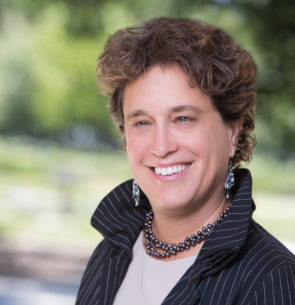
Fay Twersky
Director of the Effective Philanthropy Group, The William and Flora Hewlett Foundation
Fay Twersky is the Director of the Effective Philanthropy Group at the William and Flora Family Foundation. The team, which she shaped and launched in 2012, guides strategy, evaluation and organizational learning within the Hewlett Foundation, and leads grantmaking in support of organizational effectiveness and a strong philanthropic sector.
Fay spent 2010 to 2011 working in Jerusalem, advising Yad Hanadiv (The Rothschild Family Foundation) on issues of strategy and organization. She served for four years as director and member of the leadership team of the Bill and Melinda Gates Foundation, designing and developing the impact planning and improvement division. She was also a founding principal of BTW – Informing Change, a strategic consulting firm.
Fay is a frequent author and commentator on trends in philanthropy. Her publications include the 2014 Stanford Social Innovation Review article “The Artful Juggler,” on what it takes to be a successful foundation CEO, as well as Listening to Those Who Matter Most, the Beneficiaries and A Guide to Actionable Measurement. She serves on the boards of The Center for Effective Philanthropy and the UBS Optimus Foundation. Fay holds two bachelor’s degrees in Middle Eastern Studies and Rhetoric, with high honors, from the University of California, Berkeley, and a master’s degree in City Planning from the Massachusetts Institute of Technology.
Related Sessions
Philanthropy’s Role in Moving Beyond Political Divisions
John Inazu
Candice C. Jones
Adam Meyerson
Fay Twersky
Political polarization and division seems to be deepening in the United States. While America has always valued pluralism, American society continues to face structural challenges in dealing with deeply different viewpoints, values, and perspectives among its citizens. This plenary will explore the roots of — and solutions to — deep division, the implications for philanthropy, and examples in which funders have worked across differences in pursuit of shared goals. Questions to be explored include: What is the role of philanthropy in bridging divides? How does political division impede the pursuit of philanthropic goals? What is to be done?
Can Funder Collaboration Drive Greater Value?
Alison Powell
Antony Bugg-Levine
Hilary Pennington
Fay Twersky
Increasingly, foundations and wealthy donors form collaboratives that they hope will produce results beyond the reach and capacity of any single funder. But do collaboratives really deliver? If so, under what circumstances? This discussion will bring a range of perspectives, including findings from new Bridgespan research that assesses the impact a set of collaboratives had on funders, grantees, and fields — and identifies guidance for funders based on the findings. The panel will highlight experiences from funder collaboratives and community-led nonprofits, offering attendees an interactive opportunity to assess potential or existing collaborations.